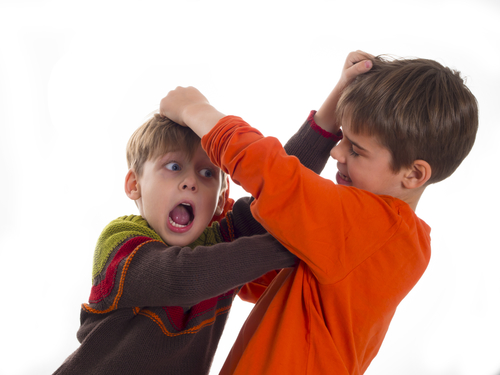Civility: Time for a Comeback

A recent experience literally made me stop in my tracks in disbelief. While on my nightly walk, I noticed a group of grade school children arguing in a neighbor’s yard. Their voices boomed with anger as they stood face to face poised for physical combat. Unmistakably, a line had been drawn about something and no one was willing to back off.
Please pray that
- Parents will role model
civility, especially within
the home. - Families will make
civility a family priority.
Parents will take extra
time to show their children
how to manage
conflicts respectfully. - All children will see their
parents charitably correct
one another. - Families will create
homes filled with civility,
prayer and joy. - Parents will witness a
visible love for God and
for others in a way that
their children will desire
to replicate. - Charity will flourish within
every family.
No child (or parent) will
ever feel they are beyond
God’s love and
mercy.
The rage escalated until a parent stepped out of the house. At the sight of the parent, half of the kids scattered in all directions. I was waiting for the parent to tell the kids to cut it out when the unbelievable happened. The parent launched verbal attacks at those fleeing. Following her lead, the remaining kids bellowed obscenities until the runners were out of sight.
Civility – oh civility, where have you gone?
Situation like this are happening all too frequently these days. Local, national, and international news cover daily incidents of civil unrest and disobedience. If one was to keep score, it would appear that opposition has replaced kindness in the world’s arena. As a parent, this really concerns me and has me asking, “Is civility really out of style?”
What exactly is civility? The dictionary definition tells us that it involves formal politeness and courtesy in behavior or speech. In my humble opinion, three words need to be added at the end; in all situations. Civility is the ability to stay mannerly and cultured at all times; when the circumstances are calm and in the face of conflict.
Civility is also a foundation for charity. It is another important virtue that helps us keep God’s second great commandment; to love one another. Civility is the application of respect, manners and brotherly love – especially when people do not see eye to eye.
Most parents would agree that children should be civil most of the time. Unfortunately, there is a growing number of parents who think it is okay to cast manners aside if a situation is heated and disagreement happens. They think this is how you stand your ground and make your point. So, in the face of conflict, they adopt the “eye for an eye – a tooth for a tooth” philosophy that says fight with everything you have when you feel belittled, threatened or disadvantaged.
How can we expect children to be respectful when parents and other adults lose their ability to discuss their differences and listen past their presumptions? Each time parents engage in or encourage combative speech or react with anger when a disagreement surfaces, they teach the next generation to do the same. This may be the reason that civility is becoming a lost art.
I have to believe that the majority of us long for the return of civility and politeness. And, I hang on to the hope that parents would rather raise civilians than combatants. If this assumption is true, then parents need to teach their children that they are strong and how weak when they listen to someone with a different viewpoint. Nor are they “giving in” when they interact with someone who they think is seriously wrong. Nor should they be fearful for presenting their own position calmly in a measured voice.
The best way to return to civility is through parental modeling that follows a I do – we do – you do format. When parents expect and model civility in all situations (I do) they teach their children to follow in their footsteps (we do). Over time, the children will naturally develop the habit to be civil (you do).
How to Bring Civility Back
Employing the I do – we do – you do model is the challenge for the month of May. Let’s take a look at how you can integrate this into your family’s life over the next 30 days.
- In the I do phase, show your children what civility looks like. Explain its importance in the home and outside the home. Show them what civility looks like by modeling and by using other examples. (Consider reading the New Testament and point out how Jesus and his disciples were civil.)
- In the we do phase, work on civility together. As a family, set up “civility” standards that everyone follows (e.g. saying please and thank you, no swearing or vulgarity, talking calmly during discussions, paying attention to the needs of others, asking questions before stating one’s position…) Once the standards are set, put them into action. Hold all family members accountable.
- In the you do phase, help your children practice civility. This is the longest phase because it takes time to make civility a habit—especially in difficult situations. Be ready to back up and repeat the I do or we do steps until civility is well established.

[…] Civility: Time for a Comeback […]